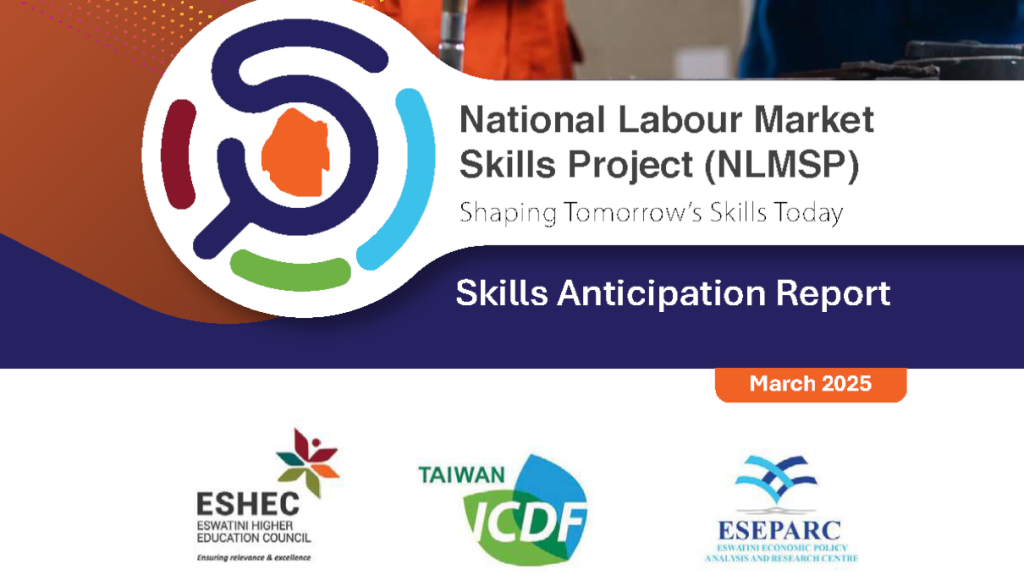
Eswatini’s ambition to become a knowledge-based economy continues to be thwarted by a chronic shortage of high-level technical skills, particularly in data science, urban planning, and research and development (R&D).
This is according to findings from the 2025 National Labour Market Skills Project (NLMSP).
The study, led by the Eswatini Higher Education Council (ESHEC) in partnership with ESEPARC and the Taiwan Technical Mission, reveals that over 80% of vacancies in these critical fields remain unfilled due to a lack of qualified candidates.
The report, which builds on the 2022 National Skills Audit, paints a concerning picture for the country’s innovation landscape. Professional, scientific, and technical activities—pillars of any modern economy—continue to suffer from a glaring deficit of skilled professionals.
These include engineers, data scientists, statisticians, and urban planners, all of whom are pivotal to driving Eswatini’s smart urban development, technological innovation, and competitiveness on the global stage.
“Importantly, industrial research and intellectual property management were critical gaps identified by sector stakeholders, limiting local innovation potential,” reads the report.
The problem is not new. In 2022, similar concerns were recorded, with a noted high demand for engineers, data scientists, statisticians, and researchers, particularly for industrial R&D and urban planning. Yet three years on, the 2025 findings show no measurable progress.
Training institutions have failed to introduce relevant academic or technical programmes, forcing local employers to either recruit foreign professionals or leave critical roles vacant, slowing down both public and private sector innovation.

The study’s findings echo the government’s broader challenge of bridging the gap between educational outputs and market needs. While youth unemployment has slightly dropped from 58.2% in 2022 to 48.7% in 2025, the persistently high rate is partly attributed to a mismatch between what is taught in schools and what employers actually need, particularly in high-skill, innovation-driven sectors.
The need for urban planning talent is especially pressing as Eswatini grapples with rapid urbanisation, strained municipal services, and rising environmental challenges.
The lack of R&D professionals is also limiting the country’s innovation pipeline. Without researchers and scientists driving industrial R&D, it becomes difficult to build a culture of innovation or attract serious investment in technology-intensive sectors.
